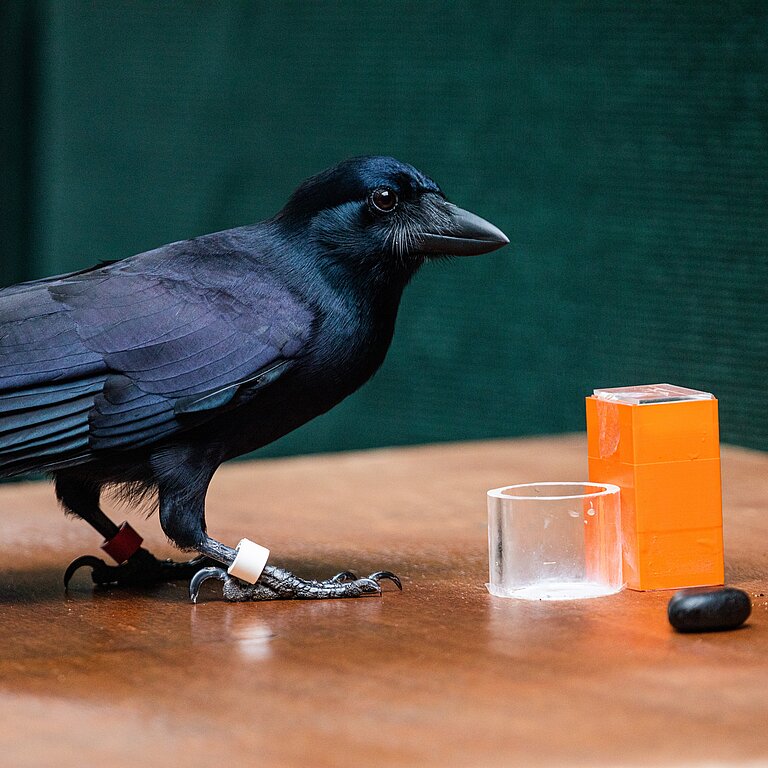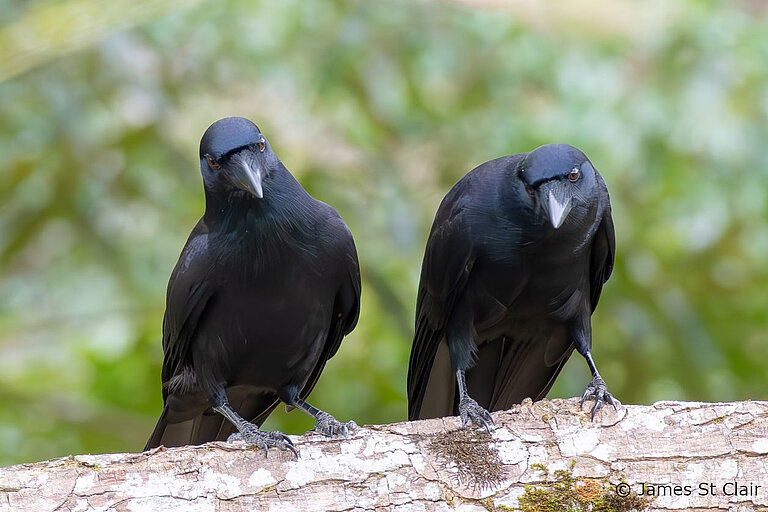Crow Cognition Group (CrowCoG)
From hammers and chisels to cars and computers—the technological behaviour of humans is unsurpassed by any other organism. Nevertheless, we are not alone in the technological realm. Since Jane Goodall’s pioneering discovery of chimpanzees' tool manufacturing half a century ago, many other primate and non-primate species are now known to exhibit tool-related behaviour, and to perform comparably on a wide variety of cognitive tasks. One species in particular, the New Caledonian crow, expresses tool manufacture skills that eclipse those seen in chimpanzees, including the production of hook tools—an ability shared only with humans. New Caledonian crows’ pandanus leaf tool designs vary across populations in different geographical areas in a pattern that suggests they have cumulatively evolved. In aviary experiments, wild-caught New Caledonian crows have successfully solved cognitive tasks that probe abilities such as reasoning by exclusion, causal inference, meta-tool use, agency detection, and short-term planning. The New Caledonian crow is thus an ideal model species to test hypotheses about what makes humans unique, and, in the process, to study the more general links between tool manufacture, cognition, and cultural evolution.
About us
To expand our understanding of New Caledonian crow tool-making, culture and cognition, the CrowCoG team, led by Alexis Breen, James St Clair, and Russell Gray, was established in February 2023. This team will combine observational studies of crow behaviour in the field with non-invasive experimental work in our large purpose-built aviaries, where crows can be temporarily housed before being released back into the wild, to test the crows’ abilities for high-fidelity social learning, memory, physical cognition and planning.
Opportunities
The Crow Cognition Group offers 2.5 to 4 month field assistant opportunities each year, typically occurring mid-March to mid-September—these are always advertised annually on the departmental jobs board.
Group Members

